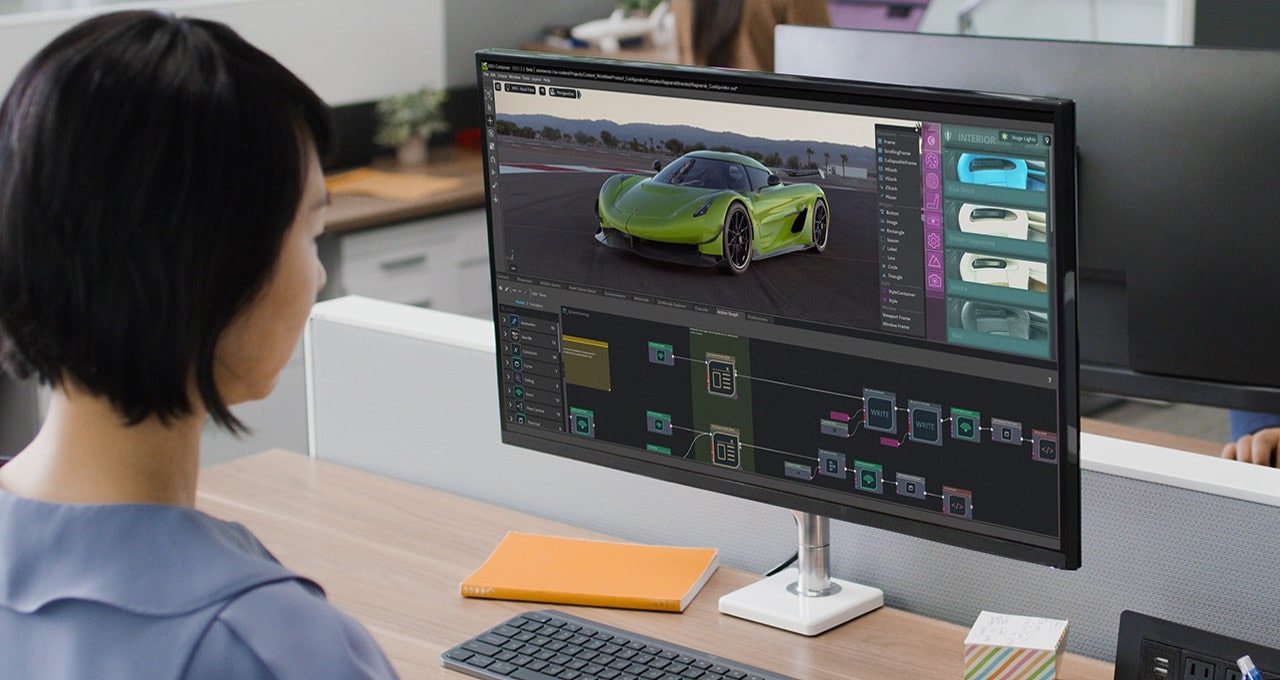Whether building a super-capable truck or conjuring up a dream sports car, spending hours playing with online car configurators is easy.
With auto industry insiders predicting that most new vehicle purchases will move online by 2030, these configurators are more than just toys.
They’re crucial to the future of the world’s automakers — essential in showing off what their brand is all about, boosting average selling prices and helping customers select and personalize their vehicles.
It’s also a natural use case for the sophisticated simulation capabilities of NVIDIA Omniverse, a software platform for developing and deploying advanced 3D applications and pipelines based on OpenUSD. It provides the ability to instantly visualize changes to a car’s color or customize its interior with luxurious finishes.
Studies show that 80% of shoppers are drawn to brands that give them a personal touch while shopping.
Aiming to meet these customer demands, a burgeoning ecosystem of partners and customers is putting to work elements of Omniverse.
Key creative partners and developers like BITONE, Brickland, Configit, Gwantsi Productions, Katana Studio Ltd. (serving Craft Detroit), WPP and ZeroLight are pioneering Omniverse-powered configurators. And leading automakers such as Lotus are adopting these advanced solutions.
That’s because traditional auto configurators, often limited by pre-rendered images, experience difficulty achieving personalization and dynamic environment representation.
They use different kinds of data in various tools, such as static images of what users see on the website, lists of available options based on location, product codes and personal information.
These challenges extend from the consumer experience — often characterized by limited interactivity and realism — to back-end processes for original equipment manufacturers (OEMs) and agencies, where inflexibility and inefficiencies in updating configurators and repurposing assets are common.
Reconfiguring Configurators With NVIDIA Omniverse
Omniverse helps software developers and service providers streamline their work.
Service providers can now access the platform to craft state-of-the-art 3D experiences and showcase lifelike graphics and high-end, immersive environments with advanced lighting and textures.
And OEMs can benefit from a unified asset pipeline that simplifies the integration of design and engineering data for marketing purposes. Omniverse’s enhanced tools also allow them to quickly produce diverse marketing materials, boosting customer engagement through customized content.
Independent software vendors, or ISVs, can use the native OpenUSD platform as a foundation for creating scene construction tools — or to help develop tools for managing configuration variants.
With the NVIDIA Graphics Delivery Network (GDN) software development kit, high-quality, real-time NVIDIA RTX viewports can be embedded into web applications, ensuring seamless operation on nearly any device.
This, along with support for large-scale scenes and physically accurate graphics, allows developers to concentrate on enhancing the user experience without compromising quality on lower-spec machines.
Omniverse Cloud taps GDN, which uses NVIDIA’s global cloud-streaming infrastructure to deliver seamless access to high-fidelity 3D interactive experiences.
Configurators, when run on GDN, can be easily published at scale using the same GPU architecture on which they were developed and streamed to nearly any device.
All this means less redundancy in data prep, aggregated and accessible data, fewer manual pipeline updates and instant access for the entire intended audience.
Global Adoption by Innovators and Industry Leaders
Omniverse is powering a new era in automotive design and customer interaction, heralded by a vibrant ecosystem of partners and customers.
Lotus is at the forefront, developing an interactive dealership user experience using Omniverse and generative AI tools including NVIDIA Avatar Cloud Engine and NVIDIA Omniverse Audio2Face.
To dive deeper into the world of advanced car configurators, read more on Omniverse and GDN.
